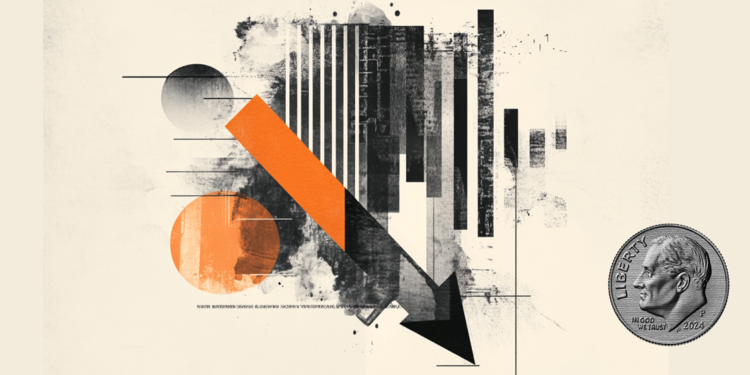Nigeria’s Public Debt Hits N152.4tn as Weak Naira, Borrowing Costs Deepen Fiscal Strain


Nigeria’s total public debt has climbed to N152.40 trillion as of June 30, 2025, according to new data from the Debt Management Office (DMO). The figure marks an increase of N3.01 trillion, or 2.01%, from N149.39 trillion at the end of March.
In dollar terms, the debt rose from $97.24 billion to $99.66 billion, reflecting a 2.49% increase in just three months.
The report shows that while borrowing has moderated compared to the previous year, the country’s debt burden continues to swell—largely because of currency depreciation and heavy reliance on domestic and external financing to cover fiscal deficits.
Register for Tekedia Mini-MBA edition 18 (Sep 15 – Dec 6, 2025): registration continues.
Tekedia AI in Business Masterclass opens registrations.
Join Tekedia Capital Syndicate and co-invest in great global startups.
Register for Tekedia AI Lab: From Technical Design to Deployment.
External Debt Sees Modest Increase
Nigeria’s external debt rose to $46.98 billion (N71.85 trillion) in June from $45.98 billion (N70.63 trillion) in March. The increase, though moderate, reinforces concerns about the country’s dependence on external lenders.
Multilateral institutions remain Nigeria’s largest creditors, with a combined exposure of $23.19 billion, accounting for nearly half of the country’s external obligations. The World Bank, through its International Development Association (IDA) arm, remains the single largest creditor with $18.04 billion outstanding.
Bilateral loans totaled $6.20 billion, led by the Export-Import Bank of China at $4.91 billion, followed by smaller exposures to France, Japan, India, and Germany. Commercial borrowings—mostly Eurobonds—accounted for $17.32 billion, representing 36.9% of the external debt.

Analysts say Nigeria’s dependence on Eurobonds and other commercial instruments exposes the country to global market volatility, especially as international investors demand higher yields amid global interest rate hikes. Meanwhile, the concentration of loans from multilateral institutions underscores Nigeria’s reliance on concessional financing, a pattern that reflects weak domestic revenue capacity.
Domestic Debt Heavily Tilted Toward Long-Term Bonds
The domestic debt stock climbed to N80.55 trillion in June from N78.76 trillion in March, an increase of N1.79 trillion. Federal Government bonds dominated the portfolio with N60.65 trillion, representing over 79% of total domestic debt.
This includes N36.52 trillion in naira-denominated bonds, N22.72 trillion in securitized Ways and Means advances—money borrowed directly from the Central Bank of Nigeria (CBN)—and N1.40 trillion in dollar bonds.

Shorter-term instruments made up a smaller share: Treasury bills accounted for N12.76 trillion (16.7%), Sukuk bonds stood at N1.29 trillion, while savings bonds, green bonds, and promissory notes amounted to N91.53 billion, N62.36 billion, and N1.73 trillion, respectively.
The sharp rise in securitized Ways and Means advances points to persistent fiscal pressure, as the government increasingly relies on borrowing to plug budget deficits rather than expand revenue. Economists warn that the trend could worsen inflationary pressures and crowd out private investment if unchecked.
Federal Government Accounts for Over 92% of Total Debt
Of the total N152.40 trillion, the Federal Government is responsible for N141.08 trillion (92.6%), comprising N64.49 trillion in external debt and N76.59 trillion in domestic obligations.
For the first time in 2025, the DMO included a detailed breakdown of subnational debt. States and the Federal Capital Territory (FCT) collectively owe $4.81 billion (N7.36 trillion) externally and N3.96 trillion domestically—bringing their total to N11.32 trillion (7.4%) of the national debt.
Currency Depreciation Inflating Debt Stock
The DMO noted that external debt was converted at the CBN’s exchange rate of N1,529.21 per dollar as of June 30, 2025. The weaker naira—compared with earlier in the year—magnified the naira value of Nigeria’s foreign debt, adding trillions to the headline figure even without significant new borrowing.
This currency effect highlights Nigeria’s vulnerability to exchange rate volatility. The more the naira weakens, the higher the country’s debt appears in domestic terms, further complicating fiscal management.
Although Nigeria’s debt-to-GDP ratio remains within international benchmarks—hovering around 45%—economists are increasingly alarmed by the rate of debt accumulation and the rising cost of servicing loans.
According to data from the Budget Office, debt servicing consumed over 80% of government revenue in the first half of 2025, leaving little fiscal room for capital projects or social programs.
The situation is more alarming as the government continues to borrow. Early this week, President Bola Tinubu wrote the National Assembly, seeking approval for a fresh external borrowing of $2.3bn. This is in addition to a plan to issue a $500m sovereign Sukuk, which will mark Nigeria’s debut in the international Islamic finance market.
The request, contained in a letter read on the floor of the House of Representatives by Speaker Tajudeen Abbas on Tuesday, complies with Sections 21(1) and 27(1) of the Debt Management Office Establishment Act, 2003. The borrowing plan seeks legislative approval for external financing to implement the 2025 Appropriation Act, refinance maturing Eurobonds, and expand Nigeria’s debt instruments to include Islamic finance products.
A Widening Fiscal Gap
Against this backdrop, concerns are growing that Nigeria is heading into a massive debt trap, especially as revenue – largely tied to oil – is not keeping up with the debt increase.
The DMO’s report comes amid concerns that the government’s 2025 budget—anchored on an oil benchmark of 2.06 million barrels per day and an exchange rate of N1,450 per dollar—is already under strain. Actual oil production has averaged below 1.5 million barrels per day, weakening revenue inflows.
Analysts say this combination of low oil revenue, high debt service, and a weakening naira could push Nigeria into deeper fiscal pressure, forcing further borrowing or monetary interventions by the CBN.
The DMO maintains that Nigeria’s borrowing strategy remains guided by sustainability principles, but with the debt stock now above N152 trillion, the challenge has shifted from access to finance to managing the burden without stifling growth.





